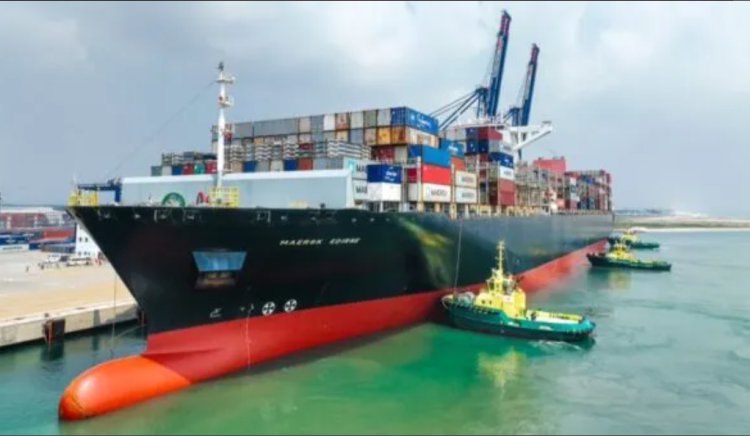Riding the Blue Wave: Why Delta State Risks Missing Out on Nigeria’s Maritime Revolution


Editorial
By Ezekiel Kagbala
On the calm waters of the River Niger, barges slowly drift past small fishing communities, their wooden canoes bobbing gently in the current. For the people who live along these banks in Delta State, the river is life — a source of fish, a means of travel, and a cultural touchstone. But for economists and development experts, it represents something more: a goldmine of untapped economic potential.
Across Nigeria, a quiet revolution is underway. States are beginning to embrace the Blue Economy — a development model that leverages water-based resources for sustainable economic growth. From inland waterways to coastal shipping, aquaculture to eco-tourism, the Blue Economy is emerging as a new frontier.
The Anambra Example
While Delta State remains heavily reliant on oil revenue, neighboring Anambra State has been making strategic moves to harness its water transport potential. The operationalization of the Onitsha River Port in 2025 marked a turning point. Within months of opening, the port welcomed its first commercial barge, carrying tiles from Ajaokuta, Kogi State.
The implications were immediate:
Freight costs dropped by nearly 40% for some traders, according to the Anambra State Chamber of Commerce.
Port operations created over 500 direct jobs in its first quarter.
Businesses began exploring new export opportunities via inland shipping routes.
Delta’s Untapped Potential
Delta State’s geographical advantages are undeniable. With over 160 km of coastline, access to the River Niger, and numerous tributaries, the state could rival any region in Nigeria for maritime activity. Historically, Warri Port was one of the busiest in the country, but decades of neglect, siltation, and security concerns have eroded its relevance.
The state also boasts one of Nigeria’s largest fishing industries, yet much of it remains artisanal, with limited processing and export capacity. According to the National Bureau of Statistics, Delta produces over 12% of Nigeria’s total fish catch, but less than 30% of that is processed locally.
Why the Delay?
Economists point to over-reliance on oil as a major factor.
Other challenges include inadequate investment in port infrastructure, lack of dredging to keep waterways navigable, and the absence of a clear state-level Blue Economy policy.
What Delta Stands to Gain
If Delta were to invest strategically in its Blue Economy sectors, experts project:
Over 50,000 jobs could be created in maritime transport, fisheries, and tourism within five years.
The Warri and Koko ports could be revived as regional trade hubs, reducing congestion at Lagos ports.
Aquaculture exports could contribute an estimated ₦40 billion annually to the state’s GDP.
Way Forward
It is recommended that Delta State Develop a comprehensive Blue Economy masterplan.; revive and modernize the Warri and Koko ports;Incentivize private sector investment in fisheries and maritime tourism.;Collaborate with the federal government to dredge and maintain waterways.
The tide is already turning across Nigeria. States like Anambra, Rivers, and Cross River are charting new economic courses through their waterways. For Delta, the question is whether it will catch the wave — or remain stranded on the shore.
Powered by FocalPoint Reports
Ezekiel Kagbala: 08038905146













